|
10/26/2019 Poetry by Rene Simon hnt6581 CC indelible my heart has wound down slow these days like an old wrist watch skips metaphorical measures when i think of that night how i kissed your spittle-flecked lips between compressions come back to me 1 - 2 - 3 come back to me 1 - 2 - 3 vermilion teardrops drying on your cheek i could not save you once you were breath bone cartilage you would think your ephemeral ghost would be weightless but i am so heavy with you weeks after, i found myself guiltily peering through your journal, sketchbooks posthumous voyeur of your life's doodles found the butterfly you drew symbol of your recovery swirled and labyrinthine page in hand i trudged to the tattoo parlor barely managing to whisper "over my heart" your blood into ink onto bone needles stinging like recriminations i imagine her wings batting, lifting off riding my night sighs to find you returning to me moistened with your kisses wielded like armor against another day without you wind (dedicated to all those lost to the drug epidemic) gusting in as furiously as her mother’s anger the blackberry clouds sending branches flinging like air-born battering rams pricking her bare arms like premonition as she crosses the street, ducks into the half-hanging door of the warehouse with it’s cracked, bucktoothed façade smirking as it swallows her. Inside, she performs the ablutions fire, spoon, cotton, lightning licking the wall in stop-motion intervals illuminating her laddered spine, the clockwork motions, anticipation slightly wobbling the orange capped syringe in her hands up until the moment the lightning ceases a crack of thunder snapping as she plunges down and down It takes only seconds for the brain to slow the breathing, for the heart to skip a beat, a beat, a beat for froth to appear at the corner of a slackening lip for a flame to blow out in the wind Rene Simon is a 48-year-old artist and writer of African, Native, and European-American descent. She has battled mental health, addiction, and trauma issues throughout her life, and now works as a Certified Peer Specialist, supporting others on the same journey. She has been writing poetry since teenage angst first hit at age eleven, but sincerely hopes it has improved with age. She loves the expansive capacity of words, from the hunt for specificity of language, to the opportunity to evoke visceral responses in an audience and aspires to transport the reader into a crystallized moment in time or state of emotion that can be felt beyond the words. She has been published in journals such as Terra Preta Review and The Green Light Literary Journal. She is currently living in Madison, WI with her partner, teenage daughter, and four unruly little dogs. You can see more of her work at https://rene-simon.squarespace.com.
10/26/2019 Poetry by Elvis Alves Garden I sit in you to remind myself of the beauty around me. A past love said that I did not know the names of flowers because I was raised in New York City. Her words poisonous arrows shot at my heart. I knew then what I now know, that names can be learned. Flowers, like everything else, come with labels. But I am interested in nature. Essence. Fragrance-- (as in all things birthed by the sun). What do Tulips add to a room? How to safeguard the medicinal property of Dandelions and Hibiscus? Will I carry my mother’s perfume when she is gone? Can someone see a lavender field and not believe in God? I Miss The smell of sea on skin. The kiss of a rising sun. Birds that serenade with songs. People who carry the earth’s energy, and moons in their eyes. Trees that give life, heavy with fruits that fall from the sky like stars. All that is green and nothing in-between. Life removed from the city.  Elvis Alves is the author of Bitter Melon (2013), Ota Benga (2017), and I Am No Battlefield But A Forest Of Trees Growing (2018). He lives in New York City with his family. 10/26/2019 Poetry by Mala Rupnarain hnt6581 CC prayer service wake up from the car crash again duties, by end of day pick up the flowers and the sandwiches wash the body put on clothes and her make-up set the hands cue the music welcome guests and the strangers sign the guest book watch them cry in lieu of flowers down the aisle an empty box with her photo say some words say a prayer say a prayer with some words take her photo empty the box down the aisle in lieu of flowers watch them cry sign the guest book and the strangers welcome guests music queues the hands take off make-up and the clothes wash the body eat a sandwich and the flowers end of duties wake up again to a car crash the car crash — wake up! say a prayer again, with some words duties, by end of day take her photo pick up the flowers empty the box and the sandwiches down the aisle body wash in lieu of flowers put on clothes watch them cry and make up! book the guests hand the strangers the music welcome guests music queues and strangers! the hands sign the guest book take off watch them cry clothes in lieu of flowers wash the body down the aisle eat a sandwich an empty flower her photo end some words wake up a prayer crash a prayer wake up some words flower photo empty a sandwich aisle wash the body of flowers clothes cry take the guest book hand strangers music welcome guests welcome music guest book cries flower the body empty photo wake up a prayer pray the body welcome welcome the body, pray bridge friends forever (for the family of Reena Virk) drugstore lipstick, veils over eyelids painted metals and shimmer tips i’d rather stay in and watch a movie with my sister but the popular girls just called white girls fill the empty places, between jagged metal and discarded bottle caps can an elephant like me escape this miserable fate meaningless circles under tense lines of grey outcast within an outcasted minority among the pale and furious clowns the victoria news named them the Shoreline Six my head and heart, a throbbing purple canvas full moon and the skies are clear stolen sips of vodka coolers moments before it ends long before the trials began when Kelly said I just wanted to get rid of her my corpse washed ashore, eight days later silence in fragments, gossip cracking the icy shallows craigflower bridge is 64 years old and I am 14 I can't make out the faces beyond far from the circus tent tears there's a tree older than both of us the blackness of bark in the November light my dad has since forgiven them all crushed seeds of my daydreams long released stardust poet (for Gord Downie) weary face of the constellation whirlwind swagger in discoball glitter pants cross country, oceans wept for the paris of the prairies Jaws agape, tearing flesh from names and lyrics an urgently focused kiss on the lips each time, after an important message from the band pausing the summer for a pigeon camera’s glimpse high school break-ups road trips may two-fours our favourites playlist on repeat, denials we learned of tentacles that resurrect even if you sever them then we met a frozen boy reconciled at the train tracks we all knew the day would come — and it did after a late night grace dear poet where did you go don’t you wanna see how it ends? and who will greet you at the open door while we grieve by this empty net have you seen the boy with infinite matches following the flight path whispering your words no dress rehearsal, only love like a map to the stars  Mala Rupnarain is a Psychology student at the University of Athabasca. Her most recent poems have been published in 2019 issues of Eclectica magazine and High Shelf Press. She’s also received a Critic’s Choice award from the Ontario-based Big Pond Rumours ezine. 10/26/2019 Poetry by Puma Perl hnt6581 CC DEATH VALLEY BODEGA I don’t know if my friend David Smith died as he wished, a white dove shooting from his mouth This morning I woke wondering how close the end is and which books to read while I still have a chance My only hope is that the dog goes first She’s not even mine and I’m not anybody’s My kids deserve the relief of unburdening my weight if I ever grow as heavy as my mother, or my father, confused, peeing in the doorway In Bodega Alley, the vet sits in his wheelchair, surrounded by clothing and umbrellas His friend folds up the tent Invisible city down here at the bottom Manhattan hides behind cranes and jackhammers We buy bodega coffee and dollar bagels Diva waits by the fence, an unoccupied blue beach chair left by her side Nobody touches another’s property in Bodega Alley People know what is theirs An open umbrella in sunlight, a radio playing Harold Melvin Wake up everybody Hurricanes to the south of us Construction northeast and west Down here at the bottom It looks the same The children of nobody sleep in the alley The men play dominos on the corner Wheelchairs cruise down the block Diva waits for her buttered bagel At home, I hear from a friend She says she’s dying We all are, I think Unsure of how to leave before the party ends While I still remember how to walk. Polarity, winter 2018 Avi’s Poem Nothing I can do, he’d say, shrugging his Slavic shoulders expressively, Nothing I can do Exiled from his homeland, from Italy, from his Brighton Beach community The life of an international drug dealer fallen on hard times, HIV, homelessness, prison, a lost daughter somewhere in Israel An old passport photo shows a handsome man, dashing, a word I’ve rarely employed During my weekly case management visit we’d sit in the kitchen of the small Sunset Park apartment my agency had provided Sometimes he’d straddle his chair, prop his chin on his hand, and say in his Russian accent, But what about you, Puma? We talk always about me. You must have problems, too. And I’d answer something boring about boundaries, and being there for him, because, after all, Nothing I can do He’d shrug his shoulders again the whiff of his body odor signaling the end of the visit; out on the street I’d breathe deeply, but I never discussed personal hygiene with him because Nothing I can do Descended from rabbis, he dabbled in Christianity because the evangelist who also visited was pretty and he had no women in his life, just us and the occasional prostitute When he died alone in his apartment my co-worker waited for the medical examiner for 12 hours, alone with Avi and his death rattle Despite his flirtation with Jesus he died a Jew and, with the help of the Hebrew Burial Foundation I managed to get him a graveside funeral Otherwise, he’d have gone to Potter’s Field We drove out to Staten Island to say good-bye to Avi The Maintenance Staff The Recreational Therapist The Director of Housing The Evangelist The Case Manager Even today, in untenable situations, I sometimes think to myself, with a mental shrug, Nothing I can do, and remember Avi, straddling his chair, saying, What about you, Puma? What about you?  Puma Perl is a widely published poet and writer, as well as a performer and producer. She is the author of two chapbooks, Ruby True and Belinda and Her Friends, and two full-length poetry collections, knuckle tattoos, and Retrograde (great weather for MEDIA.) A fifth, Birthdays Before and After (Beyond Baroque,) is due for release in 2019. She is the creator, curator, and producer of Puma Perl’s Pandemonium, which launched at the Bowery Electric in 2012 and brings spoken word together with rock and roll. As Puma Perl and Friends, she performs regularly with a group of excellent musicians. She’s received two honorable mentions and one first place award from the New York Press Association in recognition of her journalism and was the recipient of the 2016 Acker Award in the category of writing; she lives and works on the Lower East Side. Photo by Don Sztabnik. hnt6581 CC
What the Dead Have Done to Pass the Time Stu Price played violin in a community orchestra, took pictures of the coast of Maine when he visited each autumn, and listened to Holst’s Planets while drinking black tea on winter afternoons. Jerry Rushlow owned a brick yard and a car wash. He showed Arabian horses and put his foot beneath the stirrups of riders who crowded him against the rail, dismounting them in the dirt of the show ring. Geraldine Nichols smoked Doral cigarettes, ate green grapes, and played solitaire at her kitchen table, standing up every few hours to empty a tin ashtray into a black Hefty bag tied to the handle of the silverware drawer. Bette Korowski spent a career scooping ice cream and weighing out boxes of chocolate at Truan’s Candies for the failing marriages of Dearborn Heights. She ate TV dinners in the back den with her son and watched Unsolved Mysteries followed by the 11 o’clock news every night. Ben Egan shot a gram of heroin every day for years. Some nights he would nod off in the Kroger parking lot where he’d stocked shelves in high school. The police would find him covered in wet leaves and take him home to his mother. Stephanie Proulx rode a chartered bus to the Windsor Casino every Wednesday, ate perch at the buffet, and played the nickel slots. At her funeral they said she had incredible luck. Father Solanus Casey fed the homeless in Detroit, and, according to his fellow friars, played fiddle woefully in his quarters at the Capuchin Monastery on Mount Eliot. I carry a prayer card with a picture of him in my wallet given to me by Joe Driessen, who went to church several times a week, who was dressed in a drab brown robe and laid out in a deal wood coffin, which is the custom of lay Franciscans. Guy Clark ate peanut butter crackers and smoked hand-rolled cigarettes while writing songs at his workbench. Some nights while my wife sleeps in the next room I play “Stuff That Works” on a black Gibson and quietly hum the words. Cal Freeman is the author of the books Brother of Leaving and Fight Songs. His writing has appeared in many journals including Cutbank, The Journal, The Cortland Review, Rattle, Drunken Boat, and Southwest Review. He is the recipient of The Devine Poetry Fellowship (judged by Terrance Hayes) and Passages North's Neutrino Prize. He currently serve as music editor for The Museum of Americana: A Literary Review. He also regularly reviews collections of contemporary poetry for the program Stateside on Michigan Public Radio. hnt6581 CC I Want to Call Everything Marlene because there is no Marlene and I’ll be talking to her on the darkest, rainiest days because whatever it is, however amorphous or unrecognizable, no matter what is in my eyes, it will be called Marlene. What fools we are for not running like mad while we have legs only because we haven’t called the road Marlene, or because there was one mailbox we forgot to write it on. Nobody else will call the hedge Marlene, or the shadow of the hedge, where a cat might be hiding. Nobody else will use that name on the flickering pickets of fence. The silence of driveways and moonclouds is reason enough.  Donald Zirilli is a Healthcare IT manager with an English Literature BA from Drew University. He was the editor of Now Culture, the art editor of The Shit Creek Review, and remains a Rutherford Red Wheelbarrow Gang Member. His poetry was published in The 2River View, Anti- poetry magazine, ART TIMES, Nerve Lantern, River Styx, and other periodicals and anthologies. He and his wife live in an idyllic corner of New Jersey with two dogs and two cats. His chapbook, Heaven’s Not For You, was published in September, 2018, by Kelsay Books. 10/25/2019 Poetry by Alexis Rhone Fancher hnt6581 CC
Keeping Things Cold I’ve hung on to what’s left over - what you touched, what fed you, taken stock of the refrigerator’s gelid interior, sought evidence you were here. Behind the yellow mustard, and a half-squeezed tube of disappointment, that Tiger Sauce you loved. Best Before: Sept. 2007. Some things I needed to keep. Today, in the mail, an invitation. Your Amy is getting married in the fall. You’ll be gone eleven years. Who invites the dead fiancé’s mother to her wedding? She must have weighed the pros and cons as I do, afraid I’ll put a damper on the day for those who knew you, and burden those who ask: And how do you know the bride? Afraid she’ll hurt if I don’t show. Afraid she’ll hurt if I do. I search online for the perfect gift, compose my best excuse. Tonight, I’ll make French onion soup (your favorite), globules of butterfat dancing on its surface, like I would have danced at your wedding. Published in Diode, July, 2018 Overdose No, he did not look natural in his coffin. He is not in a better place. Don’t compare your pain to mine. Your dog getting hit by a truck is not the same. You really don’t know how I feel. Don’t say you’re devastated. Does it always have to be about you? Don’t ask me about Fentanyl. Don’t tell me not to dwell. Don’t minimize my loss. My boy is not better off dead. For once, let’s say it like it is: He did not pass away. He died. There is no plan. Don’t say he is at peace. Silence is good. A hug. Tell me you have no words. Or tell me stories of that summer he rode the bulls in Ogden, all that life tightly in his grip. for K.S-B. First published in The Dead Kid Poems (KYSO Flash Press, 2019) Alexis Rhone Fancher is published in Best American Poetry, Rattle, Hobart, Verse Daily, Plume, Tinderbox, Cleaver, Diode, Poetry East, Flock, Nashville Review, and elsewhere. She’s authored five poetry collections, most recently, Junkie Wife (Moon Tide Press, 2018), and The Dead Kid Poems (KYSO Flash Press, 2019). Her photographs are featured worldwide. A multiple Pushcart Prize and Best of the Net nominee, Alexis is poetry editor of Cultural Weekly. www.alexisrhonefancher.com 10/25/2019 girl with dead father by Mela Blust hnt6581 CC girl with dead father my mother has a word she turns it on her tongue, but spits it out. i whisper it into the darkness and it does dance with her loneliness, although i never say widow out loud. i search every desolate corner for my title. i look inside my skin. the razor finds no noun; the blood, no language but release. still i am a hollow thing i cannot name. i am drowning in adjectives- glacial, distant, incurable i breathe so quietly waiting but no word says "girl with dead father" and i am mistaken for so many things. in the first days, months i will seek until my body shrinks until my scars become a map but after years, there is no definition, no destination and i have settled for ashes.  Since seeking publication just over a year ago, Mela’s work has been nominated twice for Best Of The Net, and has appeared or is forthcoming in The Bitter Oleander, Isacoustic, Rust+Moth, Anti Heroin Chic, Rhythm & Bones Lit, The Nassau Review, The Sierra Nevada Review, South Florida Poetry Journal, Collective Unrest, and many more. Her debut poetry collection, Skeleton Parade, is available through Apep Publications. She is Head Publicist and Social Media Manager for Animal Heart Press, a contributing editor for Barren Magazine, and a poetry reader for The Rise Up Review. She can be followed at https://twitter.com/melablust. 10/25/2019 Bound by Michelle TinklepaughBound bound by love/they cling to each other/in a one room apartment/his belongings in trash bags surround the bed/ he holds her while she cries/it isn’t enough for either of them/it never was/his addiction a shadow in the room/it still holds him/clouds his memory of the pain he has caused/her body is scarred/each slash/ something cruel that was done to her/ he tells her the scars are healing/traces them with his finger/her body stiffens at his touch/you are still beautiful he says/she says nothing/she doesn’t want to be beautiful anymore/it has only caused her pain/now in this room/with her husband/that never felt like her husband/she remembers how quick he can change/ how his sweet tongue/can turn to acid cruel/but he is recovering/just sleepy and hollow/but her body remembers/she cries/he holds her/but she is really holding him/ his new apartment/reminds her of his old one/reminds her of how they began in darkness/still clinging/how things never change/and illusions die/ the truth is a skeleton/a loss this big/ will swallow her whole/to believe in him/to keep losing someone that can not be grasped/she has lost herself/she has a history/of loving ghosts/how he looks at her now/the longing in his eyes/in the beginning/he showed her to not be afraid of her darkness/now she just wants light/his pain/this love/is suffocating her/she knows nothing else/herself/she cannot identify/what that means/to be by yourself/to take care of yourself/to love yourself enough/to leave/he tells her how he wants to hold her all night/like this/for a moment/she imagines them/falling asleep/and never waking up/this ending frozen/in time/on this bedspread the color of ashes and dirt/how hard it is to rise the other night/she dreamt of this/seeing him again/but they weren’t like this/ he was emaciated in the dream/his cheeks drawn so thin/ a sketch of himself/and she was the same as in waking life/they lay on this dingy bed together/ tracing each others scars/hers healing/ his deep red gashes that bled on the sheets/they held on to one another/facing each other/she tries to stop the bleeding/her hands covered in his blood/ he gently pushes her hands back to her own scars/ the dream shifts/she is young again/ a teenager babysitting with another boy/ playing house/as they scramble to watch six kids/ the baby is so small/crawling away/wandering through the house to find it hidden/in closets/the basement steps/a cupboard/while they search/they hear a crash from across the street/sirens/the wailing of grief/screams/the parents come home/thank her for babysitting/seemingly unaware of the chaos/ she looks out the window/a tractor trailer truck has crashed in to the room of the little boy who lives across the street/the mother is screaming/because he is dead/but the parents inside this home/cannot see/cannot hear/they thank me again/I try to tell them I lost the baby/but the mother is holding her safe in her arms 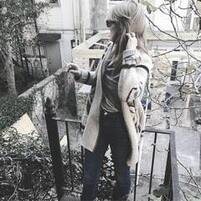 Michelle Tinklepaugh's (aka Watters) poetry has been published in various literary magazines in the past four years. A 2020 pushcart nominee and Best New Poet nominee. Her latest poems have appeared in Misfit Magazine, The Inflectionist Review, and Rat's Ass Review. She lives in South Burlington, VT with her daughter Annabelle. 10/25/2019 Elegy by Howie Good hnt6581 CC
Elegy I’m regularly being interrupted – called to the phone, sent out on a diaper run, shot with water from a garden hose, accosted by street beggars. It’s been that way since you went in for routine surgery and never came out. And yet despite the fog and corpse flies, despite the police officers who like to use their nightsticks, September is still summer, and there’s nothing wrong with that, someplace that’s got a pool table and a jukebox, and where old bandits and pirates carouse until closing and a one-eyed yellow cat curled up asleep in the corner keeps indifferent watch. Howie Good is the author most recently of What It Is and How to Use It from Grey Book Press and Spooky Action at a Distance from Analog Submission Press. He co-edits the journals Unbroken and UnLost. |
AuthorWrite something about yourself. No need to be fancy, just an overview. Archives
April 2024
Categories |
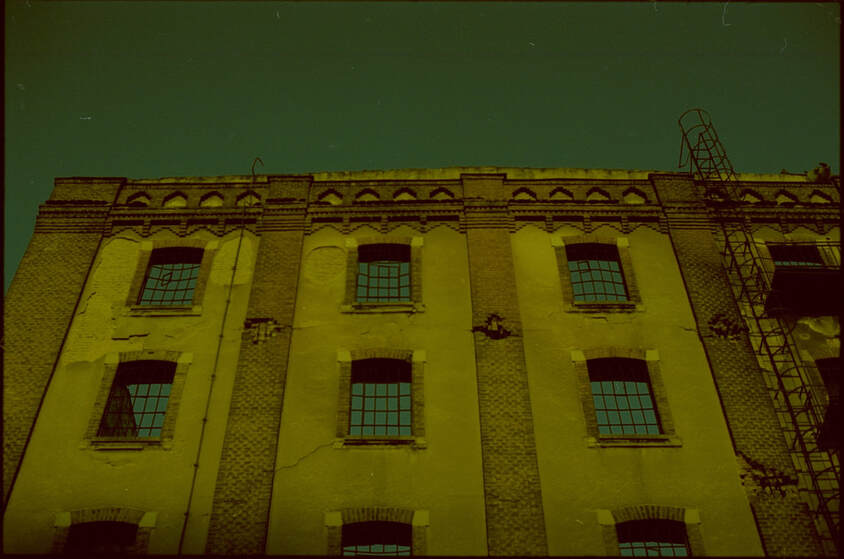


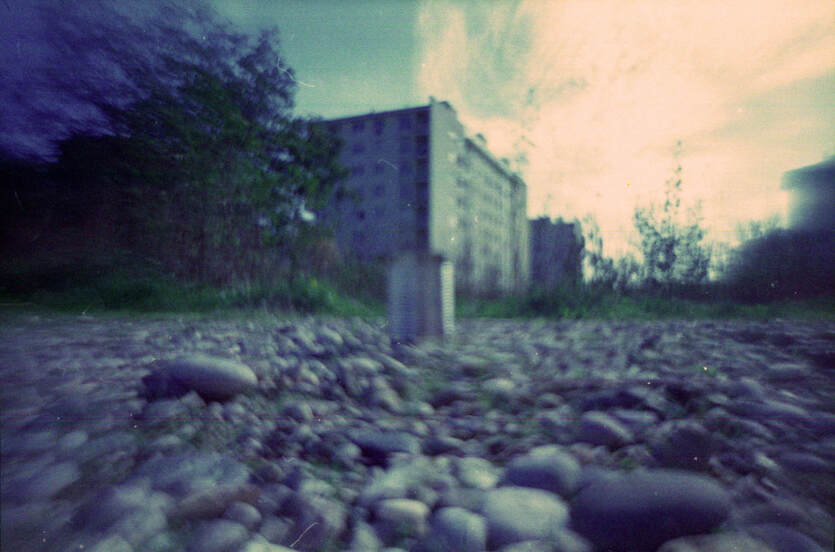
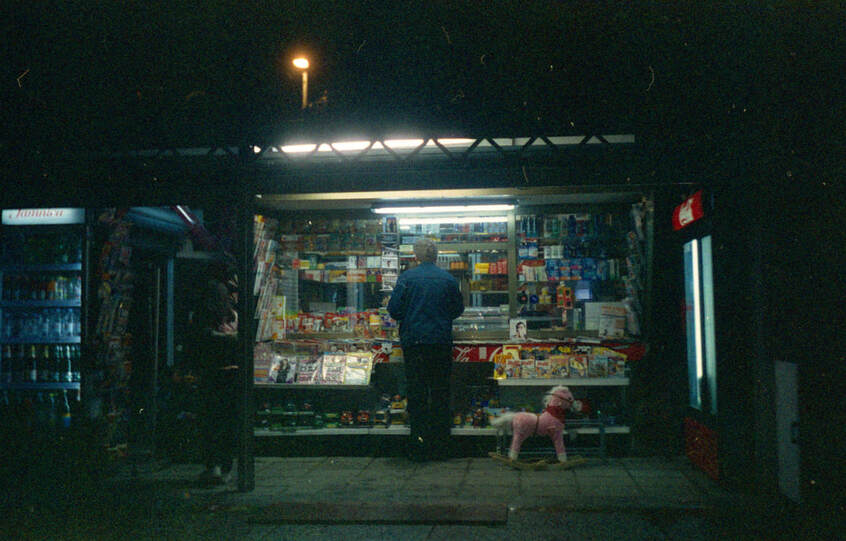
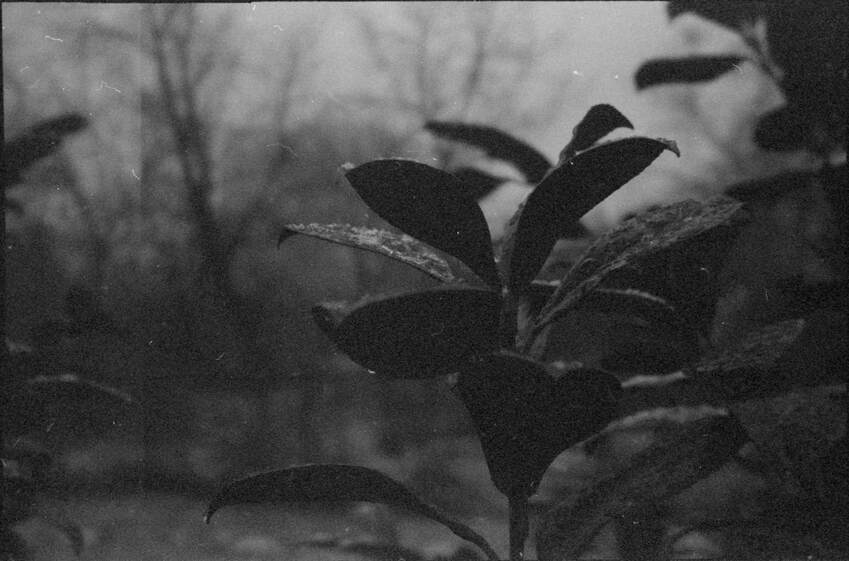

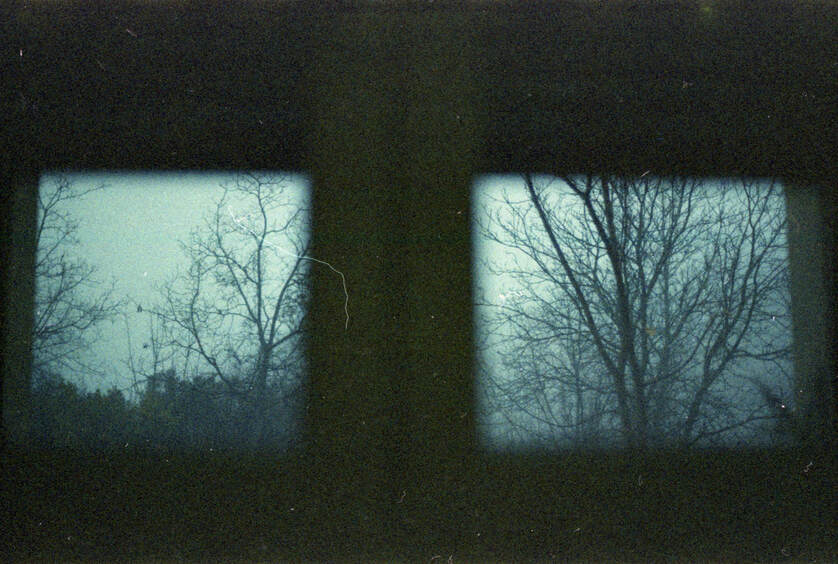


 RSS Feed
RSS Feed
